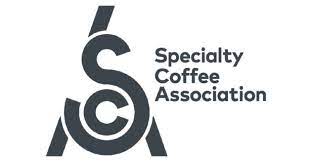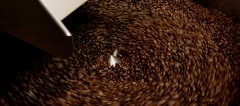What is the Q-GRADER examination course Q Certification helps the sense of Coffee to correct the Taste of Q Certificate
Some people know better than others how to evaluate the quality of raw coffee. These people are Q Graders, who have passed the rigorous training of the Coffee quality Research Institute. This is a specific training, and the whole field of research will eventually add value to the starting point of the coffee value chain. Through the Q Arabica and Q Robusta,Q programs, it has become a trade tool, bringing expertise to coffee professionals around the world. By setting global standards, CQI helps both buyers and sellers benefit through a common understanding of premium coffee. The Q course is based on a standard language for the quality of processing and sensory analysis. To become a certified Q Arabica or Q Robusta Grader, you must pass 19 tests. The course consists of a six-day intensive course divided into three days of practice and calibration, followed by a three-day test-including triangulation, cup test, olfactory test, baking grading, coffee bean grading, sensory skills, organic acid pairing test.

Through the course assessment, what students need to do is:
Learn more about the Fine Coffee Association Cup Meter and the Coffee quality Association boutique Robusta Cup Meter, and how they become useful tools.
The necessary calibration, reference, and vocabulary are needed to coordinate the profile descriptor.
Can identify different types of acids present in coffee.
Different baking protocols specific to cup testing and baking deviations that may affect the cup.
Understand the evaluation of raw coffee and its potential impact on the cup.

But you should know that this is not a plan once and for all. Even if the cup tester was certified at the time, like any other practical skill, the individual must continue to practice the application in order to maintain the calibration of the coffee. After three years, Q Graders will be asked to return to the classroom to recalibrate, and the calibration process is important because it allows everyone to align with their counterparts in the industry to conduct a consistent evaluation, to ensure that cup testing skills are still sharp, to re-understand the cup test table, and to get updates to the Q plan about CQI or any significant progress. For those who do not engage in coffee evaluation every day, skills can easily fade. The first six-day intensive course in the universe is different. Calibration is an one-day review and testing process.
The purpose of the comprehensive training of coffee sample cup testing is to grade and identify individual batches according to the professional quality physical and sensory standards of the American Fine Coffee Association (SCAA). The goal of Q is to provide participants with a professional understanding of how to identify and distinguish coffee using SCAA's internationally recognized scoring system, and to prepare them for the successful completion of the Coffee quality Institute (CQI) rigorous Q Graders courses and exams. The scoring system provides a common language for discussing coffee quality throughout the coffee chain from producers to buyers.
Important Notice :
前街咖啡 FrontStreet Coffee has moved to new addredd:
FrontStreet Coffee Address: 315,Donghua East Road,GuangZhou
Tel:020 38364473
- Prev

Is the coffee more fresh and delicious? Do oiled coffee beans have more calories? is it suitable for Italian hand flushing?
Is the coffee bean oil more fresh and delicious? Do oiled coffee beans have more calories? is it more suitable for Italian style or hand flushing? Let Qianjie answer your questions and questions today. Myth 1: oiled coffee is more fresh. Equating oily with fresh seems like a smart way to bake coffee, doesn't it? When beans have that luster, they look very shiny and sexy
- Next

The history of the origin of the chemex coffee maker introduces how to use the chemex coffee maker to make coffee.
About CHEMEX Chemex is the family business Chemex coffee machine invented by Dr. Peter Schlumbohm in 1941. Made of non-porous borosilicate glass and fixed with a wooden collar and tie, it does not give off any flavor when brewing coffee. Permanently on display at the Museum of Modern Art and other fine museums in New York, it is indeed a work of art
Related
- Detailed explanation of Jadeite planting Land in Panamanian Jadeite Manor introduction to the grading system of Jadeite competitive bidding, Red bid, Green bid and Rose Summer
- Story of Coffee planting in Brenka region of Costa Rica Stonehenge Manor anaerobic heavy honey treatment of flavor mouth
- What's on the barrel of Blue Mountain Coffee beans?
- Can American coffee also pull flowers? How to use hot American style to pull out a good-looking pattern?
- Can you make a cold extract with coffee beans? What is the right proportion for cold-extracted coffee formula?
- Indonesian PWN Gold Mandrine Coffee Origin Features Flavor How to Chong? Mandolin coffee is American.
- A brief introduction to the flavor characteristics of Brazilian yellow bourbon coffee beans
- What is the effect of different water quality on the flavor of cold-extracted coffee? What kind of water is best for brewing coffee?
- Why do you think of Rose Summer whenever you mention Panamanian coffee?
- Introduction to the characteristics of authentic blue mountain coffee bean producing areas? What is the CIB Coffee Authority in Jamaica?

